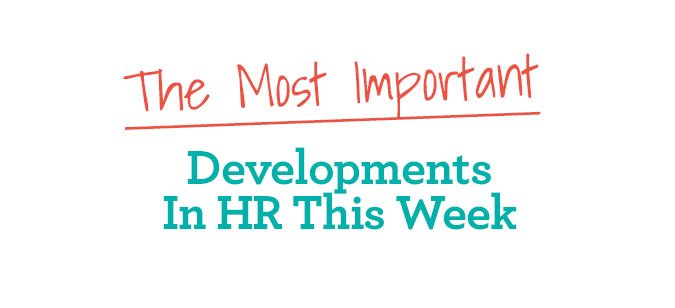
It wasn’t so much a blue wave as a she wave, as women literally changed the face of Congress on Tuesday. There are now 118 women in the House and Senate. It’s historic not just because of gender, but because of age, racial, and religious diversity, too. Deb Haaland and Sharice Davids are the first Native American women elected to Congress. Rashida Tlaib and Ilhan Omar — who came to this country as a refugee from Somalia — are the first Muslim women in the House, while Alexandria Ocasio-Cortez and Abby Finkenauer, both 29, are the youngest women to serve. We know how diversity benefits the workplace with new ideas, creativity, and bottom-line profits. May this new Congressional diversity bring that same excellence to Capitol Hill.CBS News


Mark Zuckerberg is taking on LinkedIn and other recruiting sites by investing in Handshake, a startup that sells its software to universities to help them manage student career services and job placement. Using Handshake, students create LinkedIn-like profiles, filled with relevant coursework and extra-currics that will appeal to businesses that are hiring. It’s being funded through the Chan Zuckerberg Initiative, the foundation of Zuckerberg and his wife Priscilla Chan, that usually targets philanthropic efforts in healthcare and other sectors. Fortune


Just when you thought you’d heard it all when it comes to sexual harassment, we learned this week that Under Armour execs and employees have been regularly attending strip clubs as part of their workplace culture, paid for on the company dime. In February, someone had the revelation it might not be such a good idea, given #MeToo and all, and sent an email alerting employees that their adult entertainment and gambling expenses would no longer be reimbursed by the company. The Wall Street Journal investigated and ran with the story this week, in which women employees said they felt demeaned by the practice. The article was “tough to read” for CEO Kevin Plank and president Patrik Frisk. Interesting, since Plank himself attended strip clubs with athletes and co-workers over the years, and the company often paid for the visits of many attendees. Plank and Frisk sent a memo to employees pledging the company would do better. Dare we suggest companywide sexual harassment and sensitivity training would be a good place to start? CNN


Our hearts bled for WeWorkers this week, after the company that provides shared workspaces for independent workers, startups, and freelancers in 64 cities worldwide announced it was pulling the plug on the unlimited craft beer it had been offering its members and employees. Now, they’ll have to suffer through with just four meager 12-oz. pours per day. And only after noon. The horror. This isn’t WeWork’s first millennial-tastic policy change this year. In July, it announced it was eliminating meat from all official office events and banned employees from expensing pork, red meat, or poultry when eating out on the company’s dime. Why? WeWork said in a memo that avoiding meat is even more effective at reducing personal environmental impact than switching to a hybrid car. MarketWatch


Discrimination in any form is wrong, but is it bad for the economy? Harvard wanted to know, so it commissioned a study into the economic losses caused by discrimination. Talented people are often excluded from leadership positions if they belong to the group that faces discrimination. Then what? Do corporations become less profitable? Do entire economies suffer? In a word, yes. Harvard studied Nazi Germany, where by 1938, virtually no Jewish managers remained in firms in Berlin. They were largely replaced by execs without as much education and experience, and in a nutshell, stock prices tanked and wouldn’t recover for a decade. That’s an extreme example, but today’s ban on travel from Muslim countries has Amazon, Nike, and MasterCard angry that they couldn’t recruit top talent from those countries. On the other side of the job spectrum, it hurts entry-level recruiting opportunities, too. Even the perception of not being welcome in this country (hello, caravan) will lead to losses of people who can fill those jobs. Harvard Business Review










